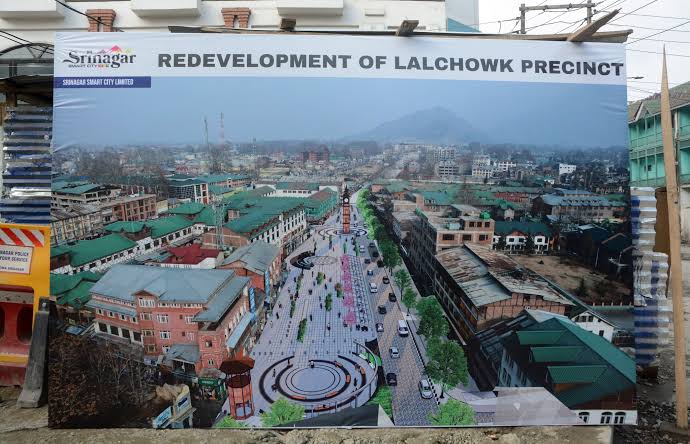The Jammu and Kashmir government has approved an ambitious Rs 15 crore project to prop up nutri cereals besides promoting and enhancing millet production and consumption in the Union Territory.
The project, planned to be implemented over a period of three years, aims to promote cultivation of millets, increase their value addition and generate entrepreneurship opportunities for farmers. The initiative also seeks to generate awareness regarding the nutritional value of millets, which are rich in proteins, micronutrients, and phytochemicals.
Millets are known as the “miracle grains” or “crops of the future” due to their resilience to climate change. They can grow in drought prone areas and do not require large amounts of water or external inputs, making them an ideal crop for small scale farmers in Jammu and Kashmir. It is also a dual purpose crop, providing both food and fodder besides contributing to the economic efficiency of farming.
In recent years, there has been a renewed interest in millets due to their numerous health benefits and the need to find sustainable solutions to food security challenges. Governments and organizations worldwide have started promoting millets as a nutritious, sustainable and affordable food option. The government of India is actively promoting the cultivation, processing and marketing of millets and in the past declared 2018 as the National Year of Millets. The United Nations General Assembly too, at the behest of the Government of India, has declared 2023 as the International Year of Millets to raise awareness about the health benefits and sustainable production and consumption of millets.
“Despite growing awareness and popularity of millets, their production and consumption is still limited and there are several challenges that need to be addressed. One of the significant challenges is the lack of awareness and knowledge about millets among farmers and consumers”, said Atal Dulloo, Additional Chief Secretary, Agriculture Production Department.
“Many farmers are still unaware of the benefits of millet cultivation and continue to struggle to cultivate high-input crops, resulting in depletion of soil fertility and water resources, these are the issues that this ambitious initiative seeks to address”, he added.
“Promotion of Nutri-Cereals (Millets) in Jammu and Kashmir” is one among the 29 projects, which were approved by the Jammu and Kashmir administration after being recommended by the UT Level Apex Committee for holistic development of Agriculture and allied sectors in UT of J&K. The prestigious committee is being headed by Dr Mangala Rai, Former DG ICAR and has other luminaries in the field of Agriculture, Planning, Statistics and Administration like Ashok Dalwai, CEO NRAA, Dr. P. K Joshi, Secretary, NAAS, Dr. Prabhat Kumar, Horticulture Commissioner MOA and FW, Dr. H. S Gupta, Former Director, IARI, Atal Dulloo, Additional Chief Secretary, APD besides Vice Chancellors of twin Agriculture Universities of the UT.
Millets were once cultivated throughout Jammu and Kashmir in plains as well as in hilly areas. The major millets grown were buckwheat species, amaranth and minor millets. However, these crops were abandoned five or six decades ago throughout J&K except in a few far-flung hilly areas of the UT. The initiative aims to revive millet cultivation in the region, which has been in decline for decades. The initiative hopes to expand the area under millet cultivation from 8310 ha to 14310 ha and distribute 550 quintal of High Yielding Variety (HYV) seeds.
The project aims to revive over 8000 ha of traditional millet-growing areas with better packages of practices, add an additional 6000 ha under millet cultivation and double per-hectare productivity from 10 to 20 quintals.
Additionally, 60 millet processing units and 60 millet restaurants serving millet-based food products will be established creating 6500 jobs and 120 enterprises in the whole process. Capacity building will be another key focus, with the aim of training 6000 farmers to increase productivity and profitability.
The project’s success has the potential to bring numerous benefits to the region, such as diversifying crops in drought-prone areas, contributing to crop resilience and nutritional security for rural communities. Moreover, by strengthening the agro-processing of millets in the region, new economic opportunities will be created, providing additional income for farmers.
With millets being rich in micronutrients and phytochemicals, there is also the potential for millet-based food products to be developed and branded as smart food, contributing to the growing demand for healthy cereal-based foods in urban areas.
Eventually, the project envisaging promotion of millets in Jammu and Kashmir is an important initiative that can address some of the challenges faced by farmers in the region while providing numerous benefits to the region’s economy, nutrition and sustainability. By prioritizing promotion of resilient crops like millets, the project can contribute towards creating sustainable and thriving agricultural communities that will be better equipped to face the challenges of a changing climate.








